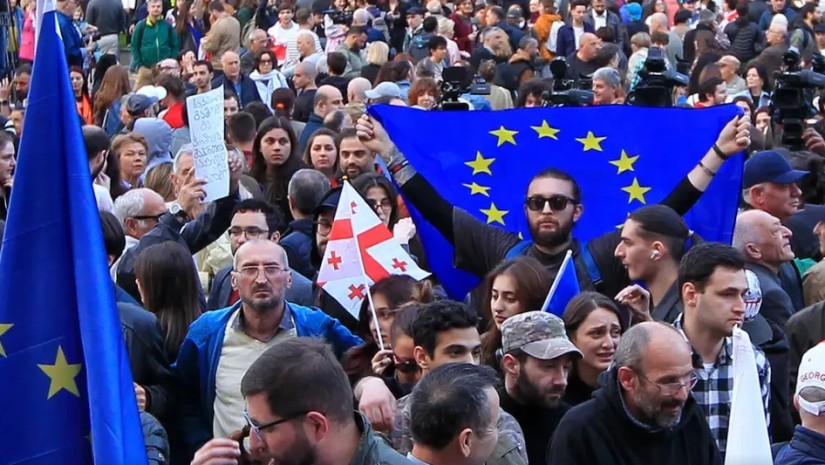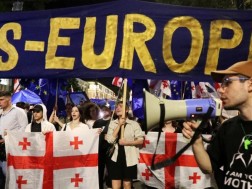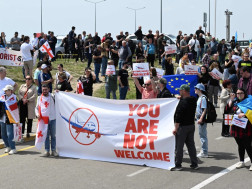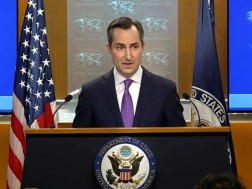Tens of thousands of demonstrators have taken to the streets in Georgia in the South Caucasus in recent weeks to protest a controversial proposed new law that many fear, if passed, would be the death knell of a once-promising young democracy and drive the country firmly into Moscow’s orbit.
The “foreign agents” law would require organizations that receive more than 20 percent of their funding from abroad to register as “agents of foreign influence.” It is modeled on similar legislation that Russia enacted in 2012 and has used to cast independent media and civic society groups as doing the bidding of foreign governments and to crack down on dissent.
Georgia has been convulsed by bouts of street protests in recent years over the proposed law and other actions by the ruling Georgian Dream party that critics fear could consolidate its power and draw the country closer to neighboring Russia, a deeply unpopular move in the former Soviet nation where an overwhelming majority of the population supports joining the European Union, according to opinion polls.
Georgia was offered long-awaited EU candidate status by the bloc last year, which could be placed in jeopardy if the foreign agents legislation is adopted. In a statement last month, Brussels’s diplomatic service urged the country’s leaders to “adopt and implement reforms that are in line with the stated objective of joining the European Union, as supported by a large majority of Georgia’s citizens.”
On Thursday, Georgia’s ambassador to France resigned in protest over the proposed legislation, becoming the first senior official from the country to do so. “I no longer see my role and resources in this direction: the move towards Europe,” said Gotcha Javakhishvili in a post on social media.
The law was first introduced in February 2023 but was quickly withdrawn in the face of massive street protests in the capital, Tbilisi. It was then reintroduced in April of this year. Georgian President Salome Zourabichvili, who is independent of the Georgian Dream, has promised to veto the legislation if passed, but her veto would likely be overridden by the government’s parliamentary majority.
“It seems clear to me, anyway, they have made a decision to go the path of one-party rule, of shutting down basically all checks and balances on executive power, and this Russian law is the last instrument that they need to put in place,” said Ian Kelly, former U.S. ambassador to Georgia.
The protests this time around are markedly different from earlier iterations, though—but not because of the demonstrators or their demands. What makes the latest round of unrest different is the level of violence and intimidation meted out against protesters and civil society as well as the government’s apparent determination to pass the law, which is due for a final reading on May 13, despite the public outcry and condemnation from the European Union and the United States.
Security forces have used water cannons, rubber bullets, and tear gas in a bid to disperse crowds of demonstrators in the capital, Tbilisi, while protesters have reported being violently assaulted by groups of men dressed in black in what they say appear to be premeditated attacks.
In recent days, civil society activists, journalists, and their relatives have reported receiving menacing phone calls from anonymous callers threatening them in Georgian and reciting their home addresses in an apparent bid to intimidate them, said Eka Gigauri, executive director of Transparency International Georgia. Gigauri said she had received dozens of calls from unknown numbers in recent days but declined to answer them.
On Wednesday evening, four government critics, including two members of the United National Movement opposition party, were attacked by unknown assailants outside their homes and in the street. Overnight on Wednesday, posters featuring the faces of prominent civil society activists, journalists, and opposition politicians branding them as enemies of the country and foreign agents were plastered near their homes and offices across the capital.
















